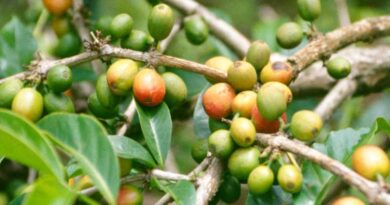USDA Appoints New Members to Science and Research Advisory Board
31 October 2021, Washington: The U.S. Department of Agriculture (USDA) announced today the appointment of 14 members to the National Agricultural Research, Extension, Education, and Economics (NAREEE) Advisory Board. Eight members are new appointments and six members are re-appointments.
The NAREEE Advisory Board provides feedback to the Secretary of Agriculture, to USDA’s Research, Education, and Economics (REE) mission area, and to land-grant colleges and universities on food and agricultural research, education, extension and economics priorities and policies. The Advisory Board also provides reports and recommendations to the appropriate agricultural committees of the U.S. Congress.
“As we continue to build back better a fair, equitable, safe and secure food and agricultural system, science and research are at the core of data-driven decisions,” said Agriculture Secretary Tom Vilsack. “The NAREEE board will play a pivotal role in shaping science priorities needed to address tough challenges that our nation’s farmers, ranchers and consumers face.”
NAREEE Board members are selected and appointed by the Secretary of Agriculture. Each NAREEE Advisory Board member represents a specific category of U.S. agricultural stakeholder as outlined in the Agricultural Improvement Act of 2018. These areas include farming or ranching, food production and processing, forestry research, crop and animal science, Land-grant Institutions, Non-Land-grant colleges or universities with a historic commitment to research in food and agricultural sciences, food retailing and marketing, rural economic development, and natural resources and consumer interest groups.
NAREEE Board activities are carried out, in part, by three committees and subcommittees that are focused on specific agricultural science areas considered by the full committee. Those committees are the Citrus Disease Subcommittee, the National Genetic Resources Advisory Council and the Specialty Crop Committee (SCC).
NAREEE Advisory Board members are listed below. Each member will serve a 1-3-year term:
National Farm or Producer Organization: Dr. Dana Allen-Tully, Gar-Lin Dairy, LLC (New); Dr. Edmund Buckner, Alcorn State University (Re-appointed); Ms. Lisabeth ‘Liz’ Hobart, GROWMARK, Inc. (Re-appointed); Academic or Research Societies: Dr. V.M. ‘Bala’ Balasubramaniam, Ohio State University (New); Dr. Mario Ferruzzi, University of Arkansas for Medical Sciences (New); Agricultural Research, Extension, and Education: Dr. Kenrett Jefferson-Moore, North Carolina A&T State University (Re-appointed); Dr. Mark Lawrence, Mississippi State University (Re-appointed); Dr. Michael Oltrogge, Nebraska Indian Community College (Re-appointed); Dr. Ariel Ortiz-Bobea, Cornell University (New); Industry Consumer, or Rural Interests: Ms. Donnell Brown, National Grape Research Alliance (New – SCC Representative); Mr. Richard De Los Santos, Texas Department of Agriculture (Re-appointed); Ms. Marguerite Green, SPROUT (New – SCC Representative); Dr. Jane Kolodinsky, University of Vermont (New); Ms. Tambra Raye Stevenson, WANDA: Women Advancing Nutrition Dietetics and Agriculture (New)
Committee/Subcommittee members are listed below. Each member will serve a 1-3-year term:
Citrus Disease Subcommittee: Mr. Christopher Boisseranc, Southwest Ag Consulting Inc., (New); Mr. Thomas Kirschner, Cooperative Producers Inc., Ranch One Cooperative Inc., Cooperative Three, Inc. & Gulf Harvesting Inc. (New); Mr. Wayne Simmons, LaBelle Fruit Company Inc. (New)
National Genetic Resources Advisory Council: Dr. Paul Gepts, University of California, Davis (New); Dr. James McFerson, Washington State University (Re-appointed); Dr. Terrence Tiersch, Louisiana State University Agricultural Center (Re-appointed); Dr. Sarada Krishnan, Denver Botanic Gardens (Re-appointed)
Specialty Crop Committee: Dr. Gregory Goins, North Carolina A&T State University (New); Dr. Carlos Iglesias, North Carolina State University (New); Dr. Nikki Lynn Rothwell, Northwest Michigan Horticulture Research Center, Michigan State University (Re-appointed); Mr. Shawn Peebles, Shawn Peebles Organic Farm, LLC (Re-appointed); Mr. Jim Tuinier, Post Gardens of Battle Creek Michigan (New)
Get more details on the NAREEE Advisory Board website.
Background
The Board’s Citrus Disease Subcommittee provides recommendations to USDA on citrus research, extension and development needs. This Board Subcommittee performs an annual consultation with the National Institute of Food and Agriculture (NIFA) on its research priorities for the Emergency Citrus Disease Research and Extension Program, a grant program that aims to combat Huanglongbing (HLB) “Citrus Greening” using systems-based, trans-disciplinary approaches to provide solutions to this disease for U.S. citrus growers.
The National Genetic Resources Advisory Council makes recommendations to the Secretary and to the Director of the Agriculture Research Service’s (ARS) National Genetic Resources Program. The Agricultural Improvement Act of 2018 expanded the responsibilities of NGRAC by increasing the Council’s membership and broadening its recommendations to include public cultivar development and animal breed development.
The Board’s Specialty Crop Committee studies the scope and effectiveness of research, extension and economics programs affecting the specialty crop industry, including the Specialty Crop Research Initiative, a granting program of NIFA.
USDA touches the lives of all Americans each day in so many positive ways. In the Biden-Harris Administration, USDA is transforming America’s food system with a greater focus on more resilient local and regional food production, fairer markets for all producers, ensuring access to safe, healthy, and nutritious food in all communities, building new markets and streams of income for farmers and producers using climate smart food and forestry practices, making historic investments in infrastructure and clean energy capabilities in rural America, and committing to equity across the Department by removing systemic barriers and building a workforce more representative of America.















